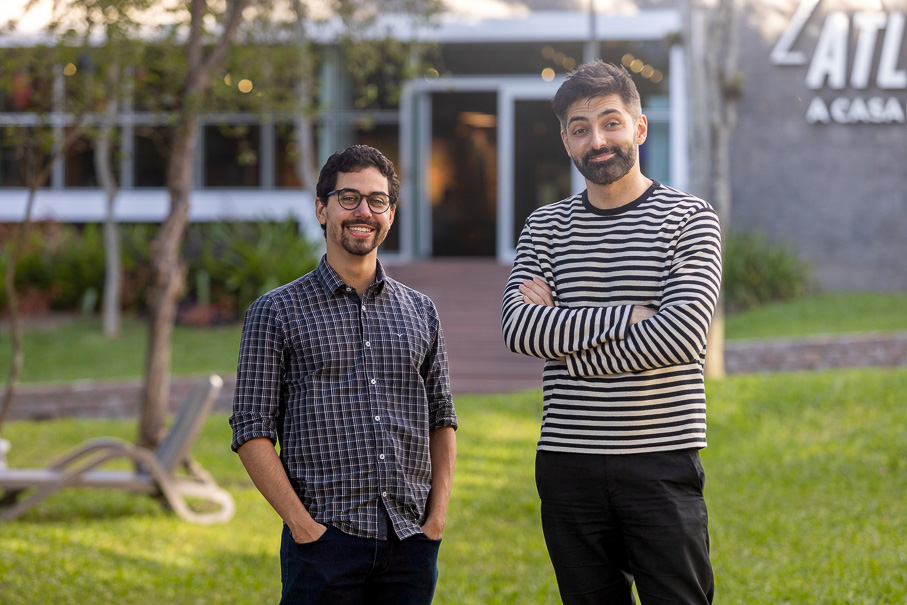Created in 2021, the award focuses on Psychology researchers who can internationalize research output in the field
The doctorate student from PUCRS’s Graduate Program in Psychology (PPGP) Felipe Vilanova de Gois Andrade was given the International Bridge Building Award, an important acknowledgement granted by Society for Personality and Social Psychology. The award focuses on Psychology researchers who work towards the internationalization of research output in the field — especially in globally underrepresented regions in Psychology. Felipe was the first ever Brazilian to win the award, created in 2021.
The doctorate student in Psychology celebrates his achievement, the focus of which is directed at tools for dissemination and improvement of science. The initiative is not a research project aimed at investigating a specific topic, but at finding the most effective way of implementing the open science paradigm in Latin American countries.
“Open science is a recent movement that intends to enhance the transparency of the scientific research process. It consists in adopting initiatives like making available databases that result from scientific research and making available the materials used in the research in open-access repository, which anyone can access at any time. One of the most commonly used repositories today is Open Science Framework,” he explains.
Felipe Vilanova, along with his research group Preconceito, vulnerabilidade e processos psicossociais (“Bias, vulnerability and psychosocial processes” – PVPP) led by professor and researcher from the PPG in Psychology, Angelo Brandelli, has worked with the concept of open science for three years. Some initiatives, like the translation into other languages of the manual on how to use Open Science Framework, were coordinated by the PVPP. In addition, the group also published a book chapter on how to use open science tools in Brazil and how understanding this may help with producing scientific knowledge.
Read more: PUCRS’s Graduate Program in Psychology completes 50 years

Photo: Giordano Toldo
One of the reasons that motivated Felipe Vilanova to work with this topic was the lack of transparency in the scientific process. The doctorate student explains that researchers often cannot verify and reproduce the findings of a research because the database of an article is not available. Added to this, there is a difficulty in communicating with the original authors.
“Paradoxically, in Latin America we are pioneers in the production of knowledge in an open and transparent way with our journals, and no one has to pay anything to publish or to read the articles. Unfortunately, the transparency of our journals is not internationally recognized, so I believe my awarded proposal has to do with this attempt at disseminating and improving science in Latin America with the use of current open science tools.”
Among the activities of the award, the doctorate student visited the Pontifical Catholic University of Peru (PUCP). There, seminars were held with Peruvian researchers on tools that increase the transparency and visibility of research in Latin America. The initiative is considered valuable not only for the global promotion of Latin American science, but also for the strengthening of partnerships between researchers in the Global South. Felipe also led seminars in the country on his research developed as a part of his doctorate at PUCRS, focused on the factors that influence the ideological development of the human being.
Angelo Brandelli, who is also Felipe’s advisor in his doctorate, celebrates this new accomplishment for the Graduate Program in Psychology. The course, which is graded 7, the maximum appraisal given by the Coordination for the Improvement of Higher Education Personnel (CAPES), is known for its relevance in and out of Brazil.
“Internationalization is one of our PPG’s strong suits, and our central work axis for the quadrennium. In this sense, for us, it is crucial that it occurs not only among professors, but for students. In addition, in Felipe’s case, it is a project that takes place in partnership with South-South collaborations that are highly relevant for the visibility and impact of the program at a local level,” he concludes.
Read also: Do I have to speak another language to join a Masters or Doctorate program?